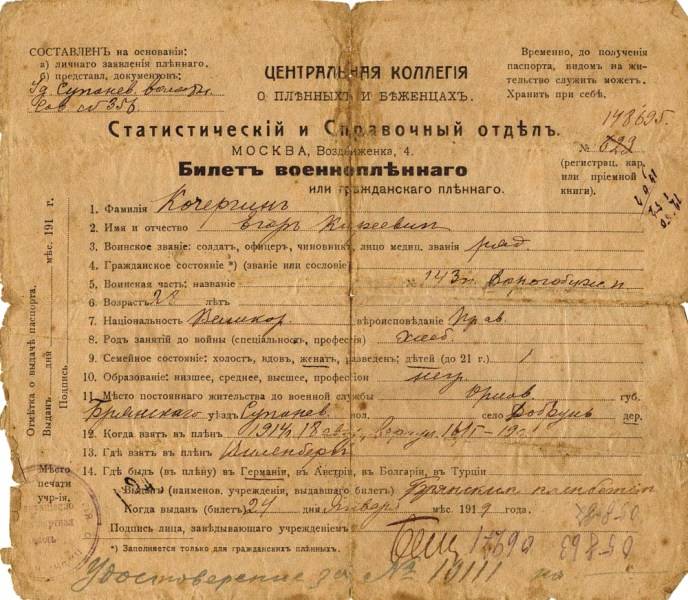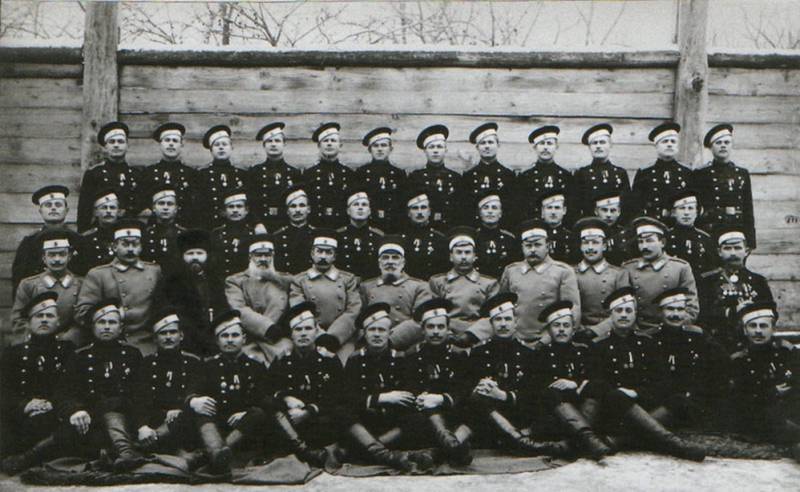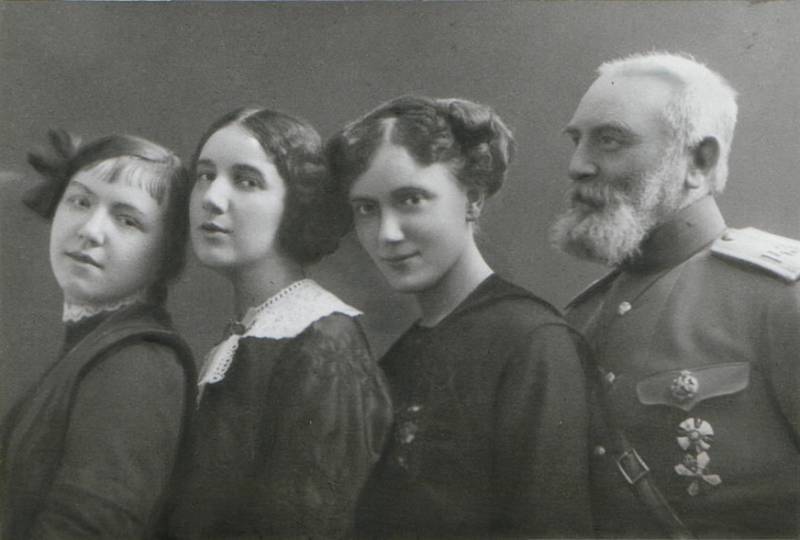Lost and Forgotten
Colonel Kobanov was the commander of the 143rd Dorogobuzh Infantry Regiment, stationed in provincial Bryansk and included, together with the 144th Kashirsky Infantry Regiment in the 36th Infantry Division (Oryol city). Both regiments fought back in the Russian-Turkish and were well-trained units located relatively close to the border, in the Moscow military district. According to the plans of mobilization, they, leaving about a hundred soldiers and officers each for the formations of the 291 Trubchevsky and 292 Malo-Arkhangelsky infantry regiments, were to become part of the 13th army corps of the 2nd army, the purpose of which was to attack in East Prussia together with the 1st army.
Actually, this is what happened - in early August, the brigade mobilized, left a frame for the second-order regiments and began to load into the echelons. It was from the train in Gomel that Colonel Kobanov, a 53-year-old career officer of the Russian army, wrote to his wife and children.
He wrote, undoubtedly, in order to reassure, because the whole undertaking with an unprepared offensive in East Prussia was beyond common sense and had only one goal - to pull off part of the German troops from the Western Front. In the best case, Samsonov's army would have been defeated after that and with heavy losses would have rolled back, in the worst ...
Worst case and came out.
Well-prepared regiments bravo entered East Prussia, moved quickly forward, losing contact with each other and complicating logistics. In fact, General Samsonov was leading the army into a sack.
Did Colonel Kobanov and other senior officers understand this?
I think yes, I will say more - Samsonov probably understood this and, perhaps, the front commander Zhilinsky himself. But France was cracking, and the rate demanded - go ahead. Later, General Golovin wrote:
The only question was who the Germans would rush to after receiving reinforcements - Rennenkampf or Samsonov.
The Germans chose Samsonov, whose troops were quickly drawn into the bag. The troops went to die. The first to be hit was the 143rd Dorogobuzh Infantry Regiment. During the march from Allenstein to Hohenstein, a regiment of two battalions (the third remained in Allenstein) on August 28 was left in the rearguard without artillery with a small stock of cartridges in order to stop the Germans. Komkor Klyuev underestimated the enemy's forces, and a German division from the Reserve Corps fell on the regiment. The Dorogobuzh residents held out until nightfall and went for a breakthrough:
The regiment's banner was buried, the Germans got only the pole, and the regiment ceased to exist. The next were the Kashirians, who were also left to cover the retreat of the corps:
The flag of the regiment will be found by Polish search engines already in the XNUMXst century ... The brigade, like the entire army, fulfilled their duty heroically to the end.
And then there was oblivion.
Memory

No.
Much has been written and said about the East Prussian operation of 1914, but in the spirit of exposing the crimes of tsarism, nobody was concerned with regiments there. And the authorities of the Empire - even more so, the memory turned out to be too uncomfortable. As a result, it is possible that it was for these reasons that the regiments were restored in 1916, despite the loss of the banners. What are the people of Kashira and the darlings? Here it is the 36th division, here is the second brigade and its 143rd and 114th regiments, they are fighting on the Northern Front ...
After the revolution and the Civil War, it became possible to recall the imperialist war only in the context of bad tsarism and certainly not the feat of the soldiers, who for the ideologists became something like victims who were forced to shoot proletarians in uniform from the other side.
It became easier after the Great Patriotic War, but not on the ground. There is almost no memory of the 2nd brigade at the place of deployment - the garrison cemetery was demolished under Brezhnev, building a school in its place and leaving a narrow square. The barracks were partly demolished, partly redesigned: neither in Bryansk, nor in Oryol there are streets named after those heroes, and there are no monuments either.
The only cross in the title photo was put already in the 70st century, and then after the old gravestones appeared in the park, not completely dug by bulldozers in the XNUMXs. They were ashamed to write, however, which soldiers and where they died. There is nothing? Eagle is the Battle of Kursk, Bryansk is a partisan land, and before that ...
Or maybe there was nothing?
What's the difference?
Here in Bryansk in 1914 - 25 thousand inhabitants, 5000 of them - the same brigade 2 that went to the war and did not return. 20% of the city's population was killed or captured.
Nobody cares, except for individual enthusiasts.
And I catch myself on heretical thought (although why on heretical, look at Ukraine at least) - change the government, and local officials will do the same with monuments that war, because there is nothing to spend money on stupidity - the monuments are not profitable.
We do not remember a lot, but even in provincial cities there is something to remember. For all the tragedy of that war, the resistance of the Russian soldier in 1914 was no worse than the resistance of their sons and grandchildren in the year 1941. And they did not know about the white-red, the crunch of the French roll and the world revolution, they just went into battle for the Motherland, how and where she told them to.


Information